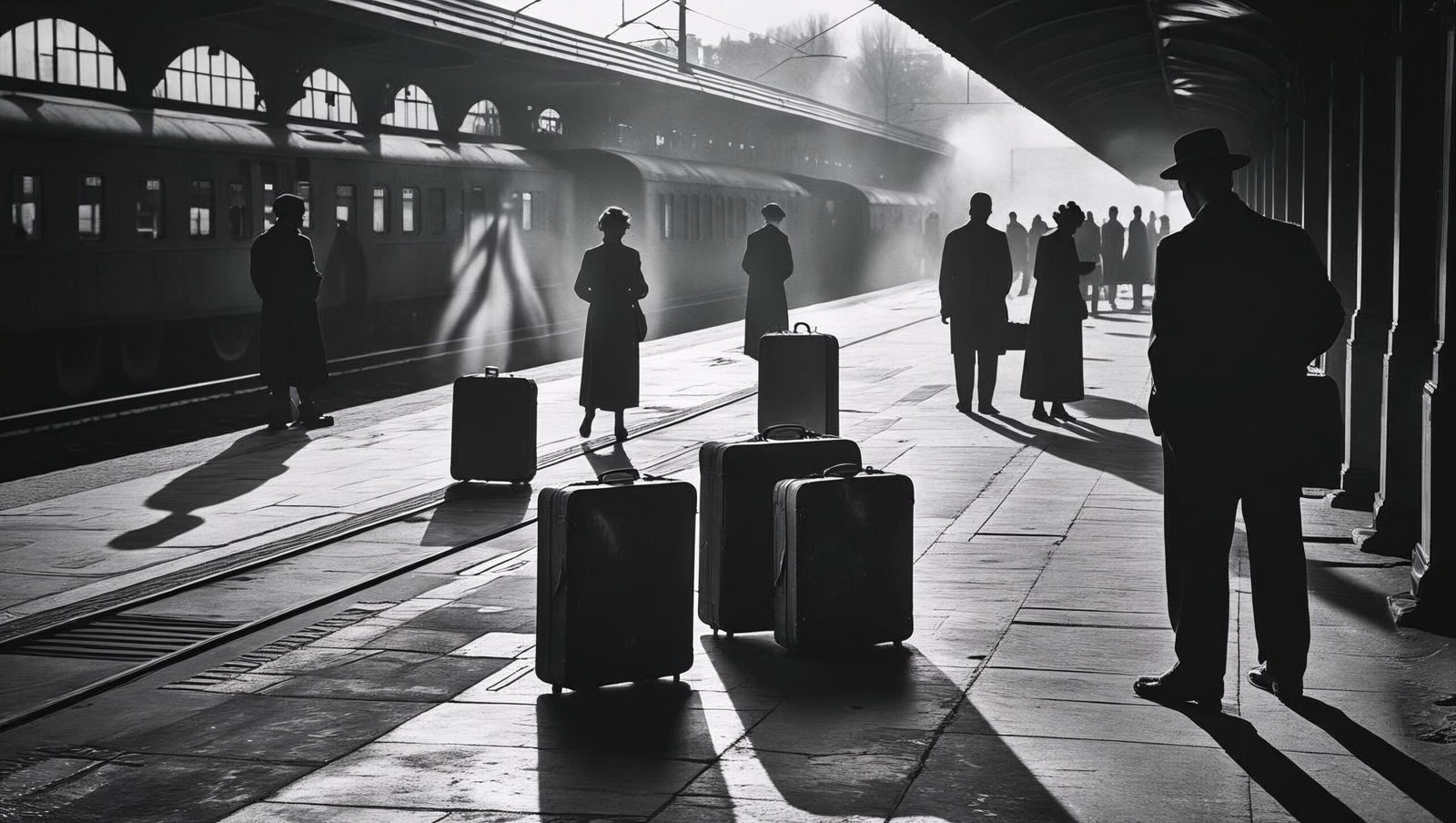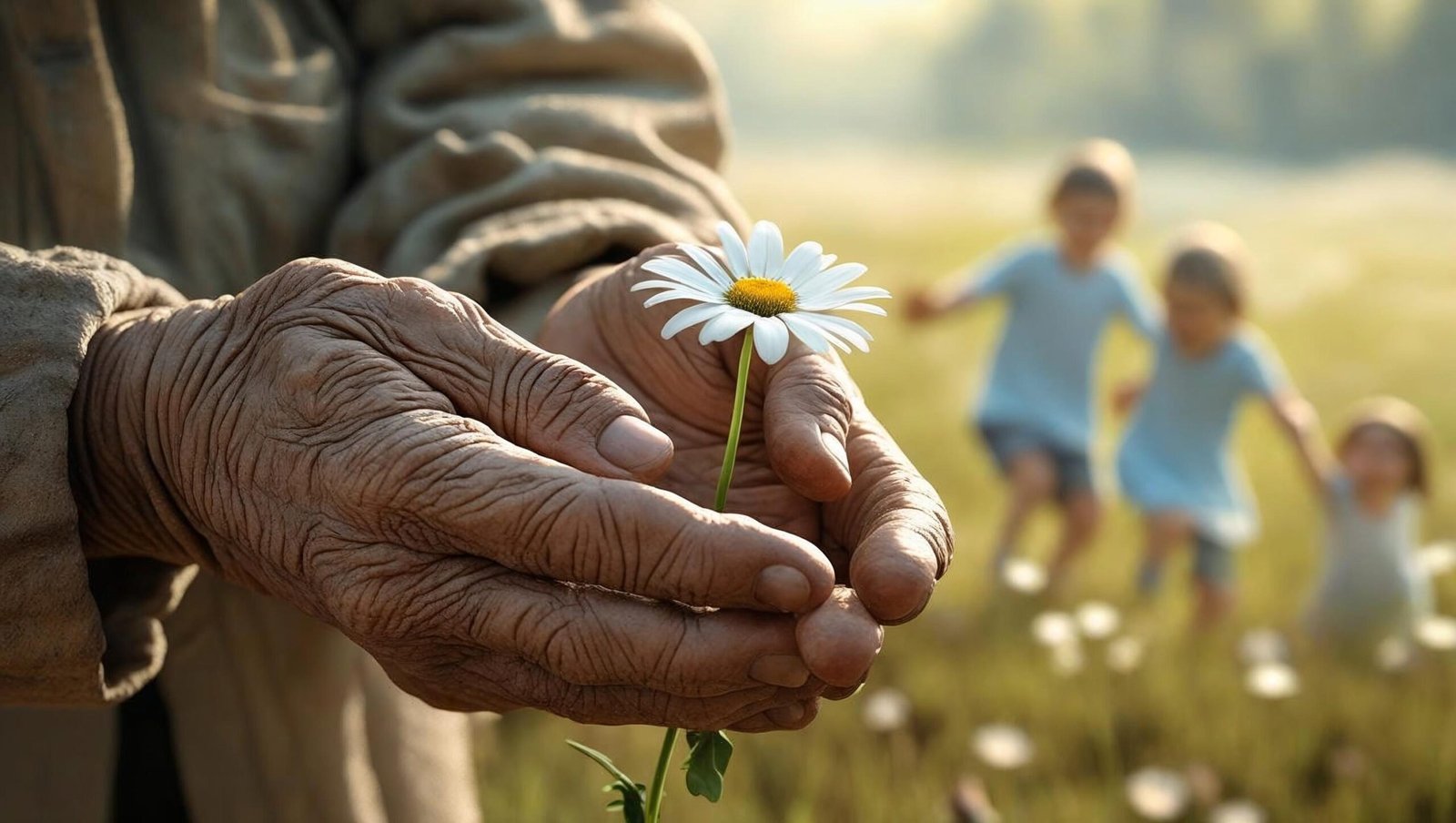7 Profound Life Lessons from The Happiest Man on Earth by Eddie Jaku
The written word has long held the power to transform hearts, uplift minds, and reconstruct the soul. Few books manage to leave an indelible mark while maintaining such effortless humility and grace as The Happiest Man on Earth by Eddie Jaku. This memoir, concise in its length yet expansive in impact, encapsulates the extraordinary tale of Eddie Jaku — a Holocaust survivor who, after enduring the darkest chapters of human history, chose light, love, and the simple joys of life.
This blog post seeks to excavate and examine seven life-affirming lessons that spring forth from the pages of The Happiest Man on Earth by Eddie Jaku. In doing so, we not only honour a centenarian’s testament to kindness and compassion but also underscore the timeless relevance of his philosophy for readers navigating their own existential tempests.

1. Happiness is a Choice — Not a Circumstance
The central thesis of The Happiest Man on Earth by Eddie Jaku revolves around the radical belief that happiness is a conscious decision. Despite losing his parents, enduring torture, and surviving multiple concentration camps, Eddie insists that happiness, not hate, was his ultimate act of defiance.
“Happiness does not fall from the sky. It is in your hands.” – Eddie Jaku
What becomes evident is that Eddie’s joy was not rooted in privilege or favourable conditions but rather in an unyielding choice to live with hope and kindness. In the age of digital discontent, where comparison is ubiquitous, his philosophy emerges as a beacon of clarity.
2. Education is a Lifeline, Not Merely a Tool
Before war shattered his world, Eddie was an aspiring engineer — a passion that later saved his life. His technical knowledge enabled him to stay “useful” to the Nazis, prolonging his survival. The Happiest Man on Earth by Eddie Jaku treats education not merely as an academic pursuit, but as a moral and existential compass.
He champions learning as the great equaliser — an armour one can carry without burden. In today’s rapidly evolving world, this truth holds steadfast: the ability to adapt, to learn, and to grow remains our most vital skill.
3. Friendship is the Greatest Wealth
Amidst the dehumanising cruelty of Auschwitz and Buchenwald, Eddie’s enduring friendship with fellow prisoner Kurt saved his life more than once. The Happiest Man on Earth by Eddie Jaku teaches that authentic companionship transcends all adversity.
In an era where virtual likes often substitute for genuine relationships, this lesson reasserts the irreplaceable value of human connection. Eddie’s unwavering loyalty and love for Kurt remind us to cherish the real bonds we have and to nurture them with patience and integrity.
4. Kindness is the Most Courageous Act
One of the most resounding principles found in The Happiest Man on Earth by Eddie Jaku is the unparalleled power of kindness — even in environments engineered for brutality. Small acts of compassion, a piece of bread shared or a hand extended, echo louder than violence.
His ability to forgive, even the Nazis, exemplifies a level of inner peace that few attain. Kindness, Eddie teaches, is not an act of weakness but of invincible strength. It is a choice to transcend our own suffering and offer warmth to another.
5. Forgiveness is Liberation
In The Happiest Man on Earth by Eddie Jaku, the author doesn’t pretend that pain disappears. He doesn’t ask us to forget. Instead, he asks us to release — to unchain ourselves from the corrosive power of hatred.
Forgiveness, for Eddie, is not condoning past atrocities but reclaiming one’s own future. When he chose to forgive, he chose freedom. For modern readers, often imprisoned by grudges and resentment, this notion is nothing short of revolutionary.

6. Family is the True Home
Having lost his entire family, Eddie rebuilt his life in Australia, becoming a devoted husband, father, and grandfather. The Happiest Man on Earth by Eddie Jaku reveres family as life’s ultimate purpose.
In a world often obsessed with career accolades and social validations, Eddie’s focus on familial love returns us to our roots. The home is not just a place, but the people with whom we feel safe, loved, and whole.
7. Life is Precious — Celebrate Every Breath
Perhaps the most moving message from The Happiest Man on Earth by Eddie Jaku is his profound reverence for life itself. Every sunrise, every breath, every laughter shared — these are miracles for Eddie.
“I do not hate anyone. Hate is a disease which may destroy your enemy, but will also destroy you.” – Eddie Jaku
By embracing the ordinary, he lived an extraordinary life. This is the most vital lesson in a post-pandemic world still grappling with loss and anxiety: to delight in the moment, for it will never come again.
The Universal Relevance of The Happiest Man on Earth by Eddie Jaku
In an age characterised by fleeting pleasures, chronic dissatisfaction, and existential uncertainty, a memoir like The Happiest Man on Earth by Eddie Jaku emerges as an anchor of wisdom and emotional equilibrium. It addresses not only the horrors of the Holocaust but more importantly, the undying strength of the human spirit. This book, far from being an elegy of pain, is a symphony of survival, selflessness, and serenity.
Eddie Jaku’s narrative finds resonance across cultural, national, and generational boundaries. Young adults grappling with purpose, elderly individuals revisiting the value of memory, and even corporate professionals battling burnout — all find relevance in the values the book espouses. That The Happiest Man on Earth by Eddie Jaku has been translated into multiple languages and adapted into audio formats is a testament to its universal appeal.
A Journey from Hatred to Harmony
What distinguishes The Happiest Man on Earth by Eddie Jaku from other Holocaust memoirs is its unique trajectory — a spiritual metamorphosis from deep-rooted anger and bitterness to serenity and love. The reader is not merely a witness to Eddie’s external journey from the horrors of Buchenwald and Auschwitz to the freedoms of post-war Australia; the reader is, more poignantly, invited to accompany Eddie on his inner voyage.
Initially burdened by the trauma of betrayal by his country and the unbearable losses inflicted upon his family, Eddie’s transformation into a man of peace feels nothing short of miraculous. And yet, through his transparent prose and unpretentious wisdom, we realise it is not a miracle — it is a choice. That choice, chronicled tenderly in The Happiest Man on Earth by Eddie Jaku, offers hope to those who struggle with inner demons of their own.
Philosophical Undertones and Moral Grounding
While the narrative appears deceptively simple, The Happiest Man on Earth by Eddie Jaku is layered with philosophical insights. Eddie does not pontificate; instead, he lets his life serve as the vessel for age-old truths. The memoir is a lived example of Viktor Frankl’s assertion that “those who have a why to live can bear almost any how.”
Jaku’s life embodies Stoic resilience, Buddhist compassion, and Judeo-Christian forgiveness. This interplay of moral wisdom makes the book not merely a historical account but a philosophical companion. Readers are quietly encouraged to reflect on their own values and beliefs as they absorb Eddie’s journey.

The Power of Storytelling in The Happiest Man on Earth by Eddie Jaku
One of the lesser-discussed strengths of this memoir lies in its storytelling technique. Eddie Jaku had spent much of his later life as a public speaker, and this experience manifests in the book’s oral rhythm. Each anecdote, whether lighthearted or harrowing, is relayed with the tone of a grandfather speaking to his grandchildren — never condescending, always sincere.
In particular, The Happiest Man on Earth by Eddie Jaku benefits from the delicate balance between narrative and reflection. He recounts a near-death experience and immediately follows it with a life lesson. He describes a friend’s betrayal and closes the chapter with a call to forgiveness. The storytelling is not about creating suspense or drama; it is about distilling meaning from memory.
The Symbolism of the Title
The title The Happiest Man on Earth by Eddie Jaku is both provocative and purposeful. At first glance, it appears ironic — how can a Holocaust survivor possibly be the happiest man alive? But that’s precisely the point. The title challenges our assumptions about happiness.
Happiness, as Jaku posits, is not the absence of suffering, but the presence of gratitude, love, and meaningful purpose. His smile in the face of tragedy is not a denial of pain, but a conscious refusal to be defined by it. The title, therefore, becomes not only a description but a declaration — an affirmation of the human capacity to reclaim joy from the jaws of despair.
The Role of Memory and Testimony
Another compelling dimension of The Happiest Man on Earth by Eddie Jaku is its role as a testament to historical memory. In an age where Holocaust denial and historical revisionism pose serious threats to truth, Eddie Jaku’s account serves as a living document — one that preserves the sanctity of real experience.
But Eddie does not use his memory as a tool for vengeance. Instead, he offers it as a guide for future generations. His memoir is a lantern for those walking in the dark corridors of their own existence. By remembering, Eddie ensures that we do not forget. By sharing, he ensures that others might heal.
Resonance with Modern Mental Health Dialogue
It is remarkable how much of The Happiest Man on Earth by Eddie Jaku aligns with modern psychological understanding. Concepts such as gratitude journaling, mindfulness, resilience-building, and post-traumatic growth are all echoed in his life choices.
Though he never uses clinical terms, Eddie’s actions validate the efficacy of positive psychology. He embraces community service, cultivates optimism, and derives strength from love — all behaviours now recognised as cornerstones of emotional well-being. It is as though Eddie instinctively knew what research would later confirm: that mindset matters more than circumstance.

From Survivor to Teacher: Eddie’s Post-War Life
After relocating to Australia, Eddie Jaku made it his life’s mission to educate others. He volunteered at the Sydney Jewish Museum, gave countless lectures, and engaged with school children across the country. The Happiest Man on Earth by Eddie Jaku is the culmination of these efforts — a final lesson from a man who had already taught thousands.
What strikes readers is his humility. Eddie never saw himself as a hero. He considered himself simply lucky — and that modesty only amplifies the strength of his story. His life, as revealed in The Happiest Man on Earth by Eddie Jaku, becomes a blueprint not just for survival, but for ethical living.
Personal Impact: Why This Book Changes You
Rare is the book that leaves you changed after the final page. The Happiest Man on Earth by Eddie Jaku is such a book. Readers often report a renewed sense of appreciation for life, a desire to mend broken relationships, or a motivation to serve others. The impact is not theoretical; it is visceral.
Many memoirs offer sympathy. This one offers transformation. It quietly challenges your daily complaints, your petty grudges, your anxious fretting about the future. If Eddie could choose happiness amidst the horrors he endured, can we not choose gratitude amidst our relatively minor hardships?
Real Reader Reactions
Across various platforms — from Goodreads to personal blogs — The Happiest Man on Earth by Eddie Jaku has moved thousands. Teachers use it in classrooms. Psychologists recommend it to clients. Parents gift it to their children.
One reader writes, “This book hugged me, shook me, and healed me — all in the same breath.” Another says, “It taught me more about how to live than any self-help book ever could.” The universal admiration is not just for the author’s courage but for his clarity — his ability to speak directly to the soul.
Legacy of Eddie Jaku
Eddie Jaku passed away in 2021 at the age of 101, but his legacy endures. He left behind more than a memoir. He left a movement — one that compels us to live better, love harder, and forgive quicker. The Happiest Man on Earth by Eddie Jaku is not merely a summary of his life; it is an invitation to reimagine our own.
In an increasingly polarised and embittered world, Eddie Jaku’s voice calls us back to our shared humanity. His story is an embodiment of light — not the kind that blinds, but the kind that gently guides.

Final Thoughts
To read The Happiest Man on Earth by Eddie Jaku is to encounter a soul unburdened by hate. It is to witness the moral triumph of forgiveness over vengeance, compassion over cruelty, and joy over despair.
This is a book you do not merely read — you absorb it. You carry it with you. And in doing so, you become a little gentler, a little stronger, and a lot more grateful.
Writing Style and Structure of the Book
The Happiest Man on Earth by Eddie Jaku is written in lucid prose, interspersed with haunting memories, moral reflections, and a tone of gentle wisdom. At just over 190 pages, it’s a concise read — but every word is weighted with a survivor’s soul.
The book’s structure is non-linear but coherent, gracefully weaving his personal story with universal takeaways. It doesn’t wallow in trauma. Instead, it transcends it, offering readers a blueprint for resilience.
Critical Reception and Awards
Since its publication, The Happiest Man on Earth by Eddie Jaku has been lauded worldwide. It has remained a bestselling memoir in Australia and the UK, praised for its emotional potency and humanistic values. Critics and readers alike have commended Eddie’s ability to deliver life lessons without ever descending into moral superiority.
Its wide readership — from students to senior citizens — is a testament to the book’s universal resonance.
What Makes It a Must-Read
While many Holocaust memoirs capture history, The Happiest Man on Earth by Eddie Jaku captures humanity. It is not merely a book about surviving genocide; it is a book about choosing to live in spite of it.
The sheer optimism radiating from its pages acts as a balm for the modern spirit. Whether you’re battling depression, grieving a loss, or simply seeking meaning, Eddie Jaku’s story delivers not only perspective but profound emotional healing.
Frequently Asked Questions (FAQs)
Q1. What is the main message of The Happiest Man on Earth by Eddie Jaku?
The main message is that happiness is a choice and that kindness, forgiveness, and love are more powerful than hate and suffering.
Q2. Who should read The Happiest Man on Earth by Eddie Jaku?
Anyone interested in human resilience, Holocaust history, or personal development. It’s especially powerful for readers feeling overwhelmed by modern life’s challenges.
Q3. How long is the book and is it suitable for younger readers?
The book is approximately 190 pages and is suitable for mature teenagers and adults, as it discusses historical atrocities with sensitivity.
Q4. Is The Happiest Man on Earth by Eddie Jaku a true story?
Yes, it is an autobiographical memoir of Eddie Jaku, who survived Nazi concentration camps and later became a motivational speaker.
Q5. Can I apply the lessons from the book in my daily life?
Absolutely. The lessons on kindness, gratitude, and forgiveness are universally applicable and deeply transformative.
Conclusion
The Happiest Man on Earth by Eddie Jaku is not just a memoir; it is a moral compass for a fractured world. In a time where mental health crises are rampant, political divisions grow sharper, and personal tragedies loom large, Eddie’s voice calls us to anchor ourselves in hope, humility, and humanity.
To read his story is to meet the best version of what a human being can be — not because he was unbreakable, but because he broke and rebuilt himself with compassion and conviction. If you read only one memoir this year, let it be this.
For more powerful book reviews and life-transforming insights, visit shubhanshuinsights.com.